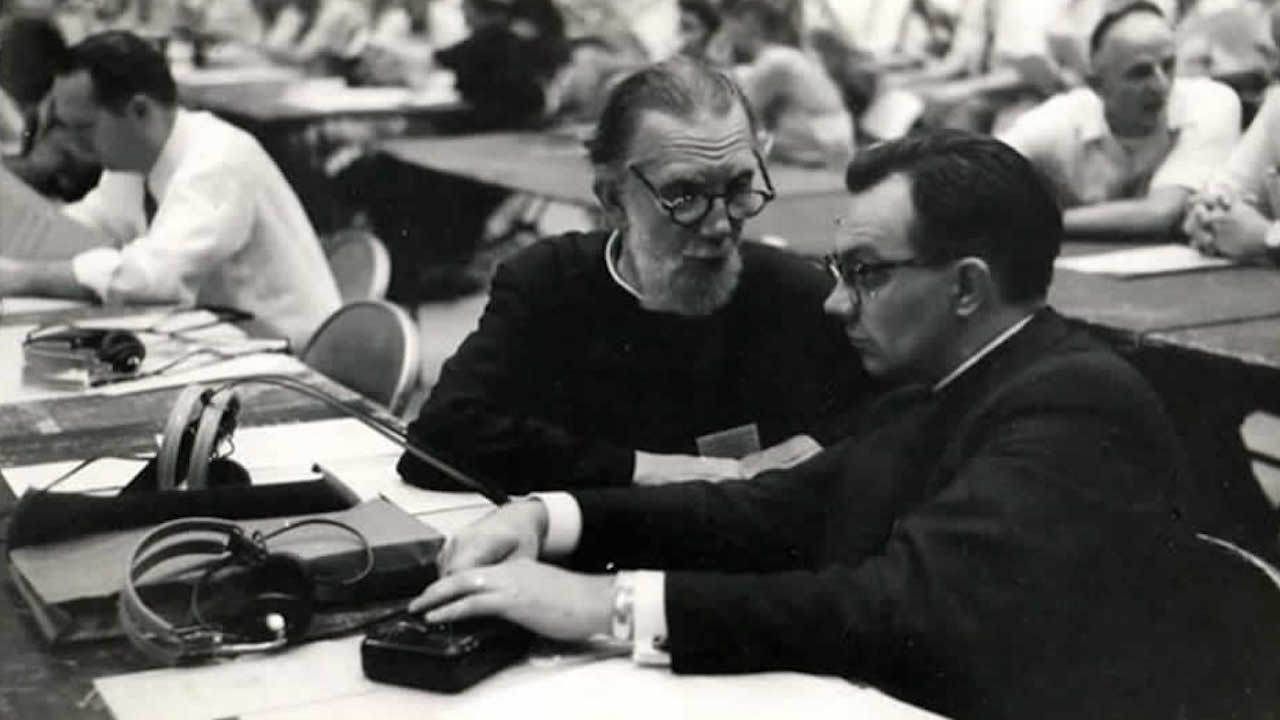Shall We Raise Divisive Doctrinal Issues or Be Content with Practical Cooperation?
THE MODERN ecumenical search, begun in a mood of hope and expectation, is now continued in a temper of impatience. Immediate “intercommunion” on a large scale is still regarded in certain quarters as a speedy solution to the problem. On the other hand, there is in wider circles a growing despair that sometimes leads to a radical change in aims and objectives. The new formula “unity without union,” whatever that may mean, is gaining support and popularity. It is dictated and motivated by disappointment and despair: Is it realistic to expect in the near future such a unification of Christians as has been suggested by the statement of St. Andrews? Why not be content, then, with practical cooperation across denominational borders without raising any doctrinal or theological issues which seem to be intrinsically divisive? Why not be content with a comprehensive “spiritual” unity, in charity and in service, or in mutual trust and affection? In fact, this has been contended for in various quarters since the famous slogan of the Stockholm conference of 1925: “Service unites, doctrine divides.”
No doubt, the growth of mutual confidence and esteem and of the ability to cooperate in practical fields is an ecumenical asset and achievement. But does it lead to unity? There is a misleading ambiguity in this practical approach. Is Christian unity really possible without union? The Orthodox are bound to say emphatically, No. Christian unity can be conceived only as unity in the Church and of the Church because Christianity is Church. Schism is an antinomy and a paradox. From the Orthodox point of view, the core of the ecumenical problem is precisely here. Even a comprehensive “reconciliation” in the realm of dogma and belief will not restore or accomplish Christian unity, important as the reintegration of the Christian mind undoubtedly is, and important as “doctrinal agreement” is in the process of recovery. One cannot work for Christian unity conscientiously and honestly without keeping the vision of the One Church in the center. Any other direction of search is an impasse or a dangerous illusion.
~Fr. Georges Florovsky, “Apostolic Tradition and Ecumenism”
Contribute to Cultural Renewal by Sharing on Your Preferred Platform
In an isolating secularized culture where the Church's voice is muffled through her many divisions, Christians need all the help they can get to strengthen their faith in God and love toward their neighbor. Eighth Day Institute offers hope to all Christians through our adherence to the Nicene faith, our ecumenical dialogues of love and truth, and our many events and publications to strengthen faith, grow in wisdom, and foster Christian friendships of love. Will you join us in our efforts to renew soul & city? Donate today and join the community of Eighth Day Members who are working together to renew culture through faith & learning.










